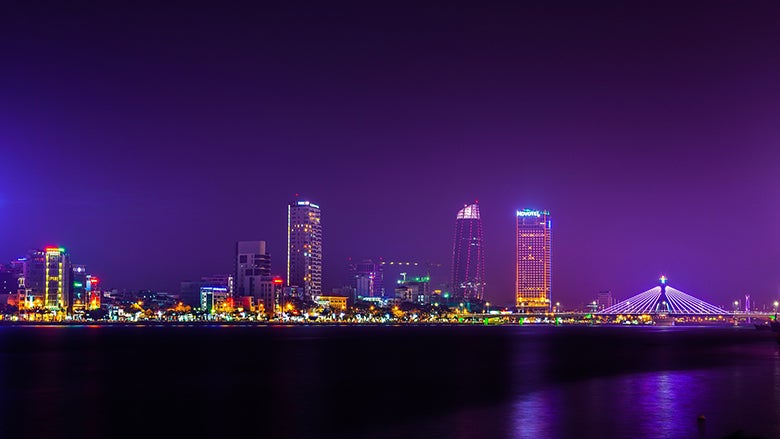
Vietnam continues to boom. It is one of the most dynamic emerging markets in East Asia , marked, over the past thirty years, by a remarkable reduction in poverty and impressive economic growth—which has benefited the population of Vietnam. Few countries around the world could boast a 2018 growth rate of 7.1 percent, supported by strong exports and a growing share of formal employment, especially in manufacturing.
Infrastructure has been a central factor of Vietnam’s fast-paced economic development. Today, 99 percent of the population uses electricity as their main source of lighting, up from 14 percent in 1993. However, economic growth is putting increasing pressure on Vietnam’s infrastructure. Freight volumes are expanding rapidly. Road traffic has increased by an astounding 11 percent annually and the demand for energy is expected to grow by about 10 percent per year until 2030.
The growth outlook for the next three years remains robust at around 6.6 percent, providing the perfect opportunity for Vietnam to continue making its infrastructure more productive—especially in energy, transport, and telecommunications—and so generating the jobs and prosperity its people seeks and wants. Vietnam already invests much in infrastructure—almost double the global average—but keeping up with its fast-paced economic growth and development will demand even higher levels.
According to our estimates, meeting Vietnam’s sustainable infrastructure needs will require investments of up to US$25 billion per year. Financing needs of such magnitude cannot be borne by the public sector alone. Currently, about two-thirds of Vietnam’s infrastructure spending are coming from public resources. In 2015, the public sector invested nearly US$10 billion of the total of US$15.5 billion invested in infrastructure that year. This could create challenges in the fiscal front in the long term. The good news is that, under the right conditions, the private sector is ready and eager to invest in Vietnam.
Private investors are challenged by complicated legal and regulatory environments and rigid risk sharing arrangements between public and private sector. A more open and clear investment environment would help expand Vietnam’s infrastructure portfolio, and much is being done. There is ongoing work on an overarching PPP legislation to improve the enabling environment. The development of a comprehensive framework to manage contingent liabilities is a priority, and in the medium term, developing a programmatic multi-year PPP pipeline of sector master plans in energy and transport would help boost the great economic potential of Vietnam. In this regard, the World Bank could provide diagnostics and technical assistance to support the Government’s sector strategies.
SOEs continue to play a crucial role in Vietnam’s economic development, but face increasing challenges, including financing. Reforms and sectoral transformation could help prepare these key players to access commercial finance, instead of pushing individual transactions off balance-sheets—which could lead to poor private investments and ultimately higher fiscal costs. Likewise, a deepening of the domestic capital markets could provide important local financing in Vietnam, as domestic capital markets can be solid alternative to loans for infrastructure financing, and complement the commercial banking sector.
Vietnam’s high economic growth rates and its ambitious development goals will ultimately be sustained by the growth of its productivity , and infrastructure competitiveness plays a central role for this. The World Bank is proud to be a close partner to Vietnam in supporting its infrastructure aspirations, from upstream reforms and regulatory frameworks to downstream actions, as well as tapping into the private sector for adequate and efficient investments. Bridging the infrastructure gap is critical to keeping Vietnam in the fast lane to further prosperity.


Join the Conversation